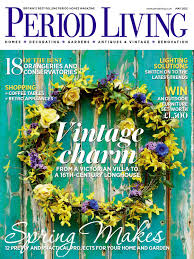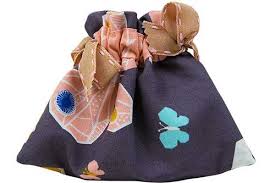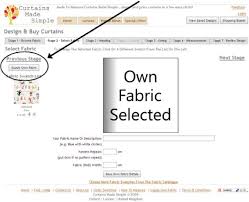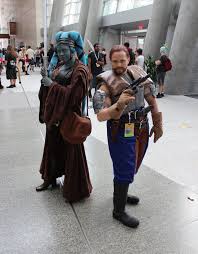sew simple blinds hoddesdon

IF YOU PREFER TO study in a group The following short, professional courses are taught by Rowena at Central Saint Martins College of Art & Design. Each course is developed as a unique and complete experience, packed with skills that are often neglected in full-time education today, but essential when looking for work in fashion and textiles. Taught in her distinctive, constructivist way and focussed on teaching you how to teach yourself more, if taken together, the following four courses compliment and integrate with each other to give you a confident platform from which to produce a portfolio, and look for work.Please note that these short courses run separately from this website. For the dates and prices of each individual course please scroll down to click on the button labledDATES - PRICES - BOOKINGSwhich is positioned above and below each individual course description.THE FUTURE OF FASHION IS HAND SEWN HAND-SEWING FOR COUTURE AND BESPOKE FASHION. If you are looking for work in couture fashion, bridal-wear, millinery, bespoke tailoring or theatre costume production, perfect hand-sewing skills are essential.

During this beginners course you will create a reference book of hand-sewn samplers, to add to your portfolio of work whilst mending a piece of vintage or antique clothing. Starting with a simple running stitch, basting stitch and back stitch you will learn how to mark dart positions with tailors tacks, add backing fabrics with herringbone stitch, insert a zip with prick stitch and turn up a hem with blind stitch. You will be taught how to finish curved hems, rolled hems and tailored hems; create eyelets, button holes and button loops and attach fasteners such as hooks, eyes and press-studs. You will be shown how to sew on different types of buttons including tailor's buttons; practice pad stitching and invisible darning; make gathered fabric flowers and explore other decorative techniques such as hand tucking.No previous experience is needed for this course. "I work front-of-house for Henry Herbert Tailors and enrolled on Hand Sewing for Couture and Bespoke Fashion in order to have a better understanding of how our tailors work and to be able to carry out small tasks in the shop, such as stitching on a button or turning up a hem.

I absolutely loved the course and Rowena's way of teaching. She created an atmosphere that was the perfect balance between hard work and fun and although the pace was fast, I felt able to take my time and concentrate on the specific skills that I wanted to perfect. I particularly enjoyed meeting and exchanging experiences with such a diverse group of people from all over the world. I now feel more confident when communicating with our bespoke tailors and would highly recommend this course". Client Consultant, Henry Herbert Tailors. Hand stitched samplers and covered buttons by Rowena Luke-King. You may like to follow the Pinterest inspiration board for this course.EMBROIDERY LEVELS ONE & TWOThis course will introduce you to a variety of hand embroidery styles including ribbon work, cut work, shadow work, stump work, Indian mirror work and smocking. You will practice basic stitches such as chain stitch, cross stitch and blanket stitch before progressing to more complicated stitches such as French knots, herringbone and Jacobean couching.

You will be shown how to transfer your designs to a variety of cloths; use appliqué and embroidery to cover buttons; attach beads and sequins and complete the course by producing a unique piece of hand embroidered fabric that could be turned into a needle-case, used in accessory design or shown as part of a textile design portfolio. No previous experience is needed for this course. Shadow work, stump work and ribbon embroidery by Rowena Luke-King.
kerry's blinds manisteeYou may like to follow the Pinterest inspiration board for this course.
shade-o-matic jasper faux wood blindsThis course will introduce you to more advanced embroidery styles including drawn thread, pulled thread and Chikankari work as you create a piece of contemporary whitework or needlelace.
ggl s01 blinds
Whilst experimenting with a variety of white yarns on white fabrics you will add to your repertoire of stitches by learning how to embroider on tulle, appliqué on organza and how to plan and weave Tenerife lace. You will learn how to stitch bullion knots, cable plaits and raised chains for Mountmellick work; scalloped edges and woven bars for cutwork and combine raised stitches with openwork for Appenzell style figurative images. You will explore different types of quilting such as trapunto and shadow cording and will complete the course by producing a unique piece of white on white fabric that could be designed in the shape of a collar or used as part of a brides trousseau or shown in a textile design portfolio. This course can be taken independently of Embroidery Level 1 if you already have competent hand embroidery skills. "Embroidery Level 2 was a super, stimulating course with a great tutor. Rowena is extremely skilled and knowledgeable, and expects students to work hard and think 'outside the box'.

She creates a fun atmosphere within an open and friendly studio, with excellent resources and great music! I enjoyed Embroidery Level 2 so much that as soon as it was over I enrolled on the next available Embroidery Level 1 and had another brilliant week." Stump work, drawn thread work and needle weaving by Rowena Luke-King.You may like to follow the Pinterest inspiration board for this course.THE BEAUTY OF COUTURECouture designers such as John Galliano and Vivienne Westwood often work in half-scale when generating ideas for garments that use a lot of cloth. As a feature of this beginners bridal-wear course, you will make your own half-scale tailors dummy and use it to create a vintage style, portfolio-size, wedding dress.The first three days of the course will focus around making your dummy. You will visit the college library to explore volumes of 1940s, 50s and 60s Vogue and learn how to use simple fashion design development techniques to articulate your ideas. Later in the week you will work on a series of sewn samples as you learn to stitch by hand and machine, the different types of seams and finishes used on popular bridal-wear fabrics today.

The second week will start with an introduction to basic pattern cutting techniques, toile production and modelling on the stand. You will adapt standard half-scale patterns to the specifications of your own design; make a calico toile, fit it to your own tailor's dummy and once perfected, use this toile to create your final paper pattern. Towards the end of the week we will visit the shops on Berwick Street where you will be advised on the best fabrics for your design. You will carry out stitch and garment construction tests to establish what linings and interlinings to use and will spend the last week of the course concentrating entirely on making your finished dress. You will be introduced to different decorative techniques such as beading and appliqué; learn how to insert an invisible zip and how to use 'Rigelene' and 'Crin' for shaping and extra support.Technical support on the college industrial sewing machines is available for the duration, therefore no previous experience is needed for this course, which is perfect for fashion students wishing to embark on a career in bridal-wear.